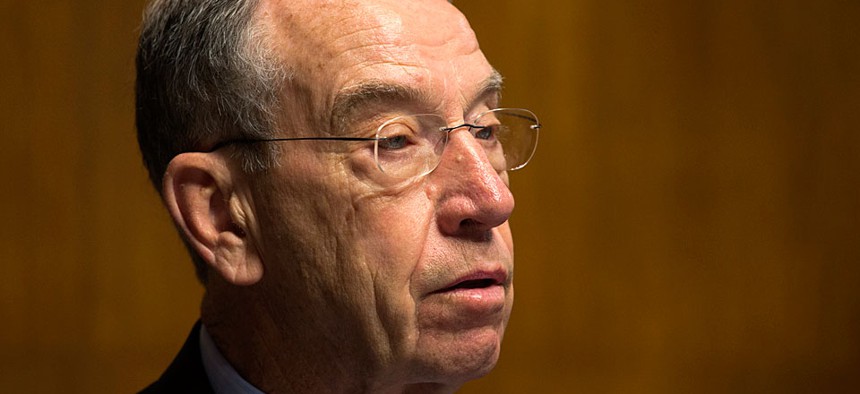Congress Takes Aim at Senior Execs
Top career employees accused of misconduct could be fired or placed on leave without pay under legislation.
Legislation circulating in Congress would empower agencies to immediately fire senior executives accused of misconduct under certain circumstances.
The bills, backed by several Republicans in both chambers, also would allow the government to put those top career employees on leave without pay for three months pending the outcome of an investigation. The legislation directs agencies to fire, suspend without pay, or reinstate employees at the end of the 90 days.
The Government Employee Accountability Act (H.R. 2759) is one of 10 bills the House will vote on this week as part of its “Stop Government Abuse” initiative. Other bills included in the initiative are specifically targeted at government spending as well at the Internal Revenue Service, which is still reeling from its management scandal involving career employees.
H.R. 2759 allows agency leaders to remove senior executives on the spot if they determine that they have neglected their jobs, used taxpayer funds inappropriately or engaged in malfeasance, and if those actions endanger the interests of the agency or the country, according to the legislation. If agencies cannot remove such an employee expeditiously any other way, then immediate termination is an option under the bills. Employees would still retain their existing due process rights, including the right to appeal their removal to the Merit Systems Protection Board.
Agencies typically place senior employees accused of wrongdoing on administrative leave with pay during an investigation. After the 2012 scandal involving lavish spending on conferences by top career employees at the General Services Administration and this spring’s political and management imbroglio at the IRS, many lawmakers are fuming that some officials continue to receive pay during the investigations.
“The taxpayers shouldn’t have to pay for employees to go on administrative leave for long periods of time while the government takes its time deciding these cases,” said Sen. Charles Grassley, R-Iowa, a co-sponsor of the Senate bill (S. 1378). “Even if the employees are on unpaid leave, the employees’ status should be resolved in a timely way so the government can move on and conduct business more efficiently.”
Sen. Roy Blunt, R-Mo., introduced the companion legislation last week. The House passed a similar bill last year, but it went nowhere in the Senate.
“I look forward to it being supported again in the House and expect the Senate to responsibly consider it,” said Rep. Mike Kelly, R-Pa., when he reintroduced the legislation in June.
Federal employee groups criticized the bill’s “guilty until proven innocent” standard. “H.R. 2579 provides that some executive branch employees could have their pay withheld during investigations, even though no finding of wrongdoing had been finally determined,” wrote National Treasury Employees Union President Colleen Kelley in a letter to House members asking them to oppose the legislation. “Members of Congress are not subject to pay reductions during similar investigations, and this bill does not change that.”
Senior Executives Association President Carol Bonosaro said it was “unfortunate” that lawmakers in the Senate have followed the House’s lead. “If enacted, the bill would enable politicizing of the SES and would certainly cause none but the foolhardy to consider the Senior Executive Service a viable career choice.”




